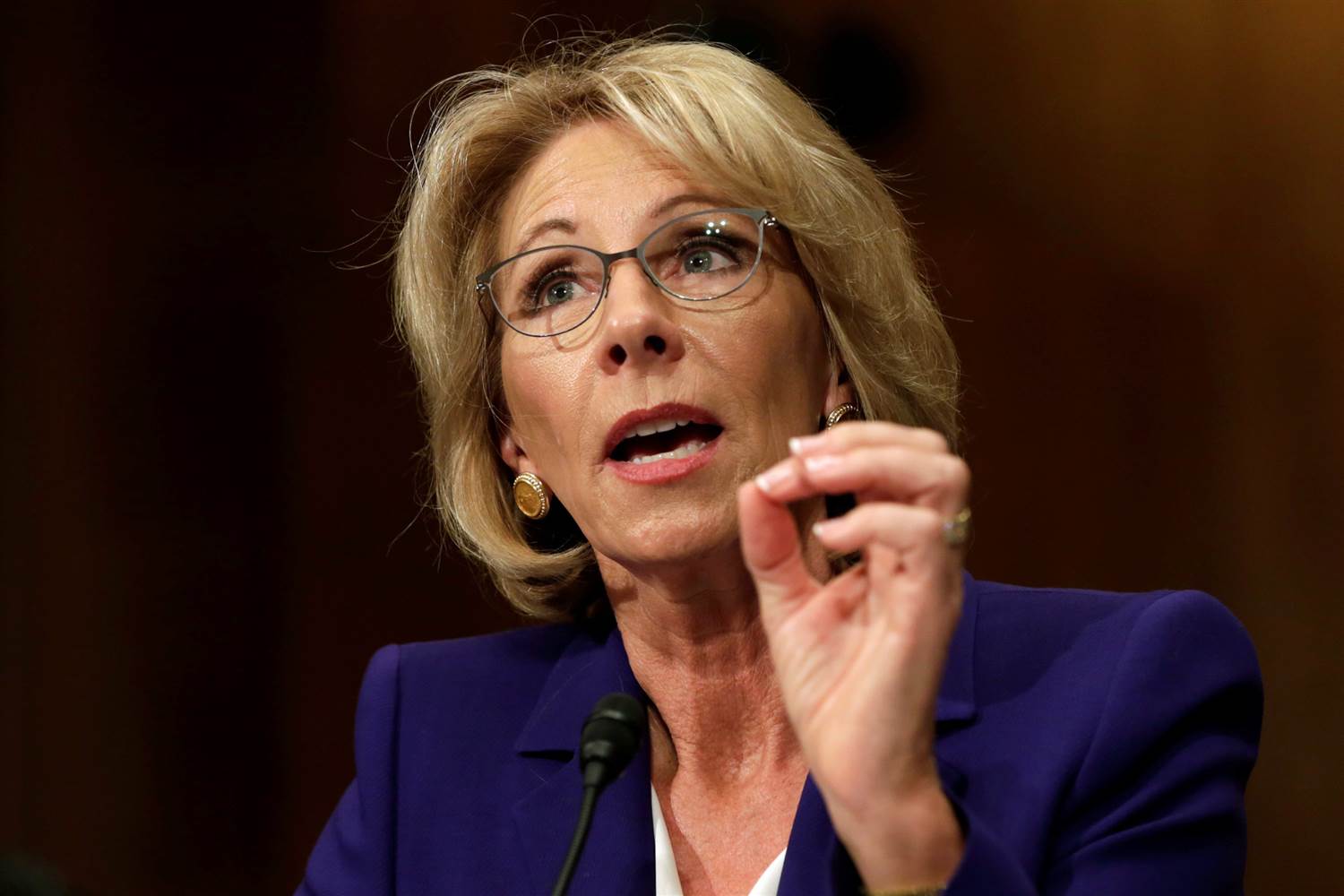In the coming months, Education Secretary Betsy DeVos will have the difficult task of working to determine how to best enforce Title IX, the 1972 law that requires schools to protect students from rape and sexual assault.
According to the “New York Times,” DeVos’ decision to look into this issue was partially spurred by the hundreds of letters she received from alleged rapists, whose lives had been destroyed by cases in which they pled innocence. In July, the education secretary held three hearings: one with victims of sexual assault, one with those accused of sexual assault and one with higher education officials, all regarding what role the federal government should play in ensuring colleges and universities are properly investigating and prosecuting reports of sexual assault.
One important aspect of Title IX that DeVos will need take a look at is whether to revoke a letter that the Obama administration issued in 2011 warning colleges that, if they failed to take a tough stance against rape and sexual assault, they would risk losing millions of dollars of government funding.
DeVos will also look into potential changes regarding the standard of evidence used to determine if an accused student is guilty of sexual assault. The Obama administration instructed bodies of higher education to opt for a “preponderance of evidence” standard, which actually lowered the standard for evidence, since previously, many universities had followed the “clear and convincing evidence” threshold. While victims and alleged victims of sexual assault praised this move by the Obama administration, accused students and their sympathizers were not so happy. They protested that the decreased standard of evidence gives the word of the accuser more weight than the word of the accused, turning the decision to discipline or suspend a student into a “he said, she said” case.
This is an issue that Education Secretary Betsy DeVos intends to look into. And it certainly won’t be an easy one for her—or for anyone, for that matter—to find a solution to, because there is no clear-cut solution to the issue of dealing with sexual assault on college campuses; every possibility has its merits and demerits. Maintain the lowered standard, which arguably favors the alleged victims? Not without occasionally negating due process, a fundamental American right. Raise the standard to the pre-Obama administration level of “clear and convincing” evidence? Not without disregarding the trauma that the accuser potentially experienced and discrediting their statement.
While there is no perfect way for a university to deal with an alleged sexual assault, one way, in my opinion, is better than the other. Believe the alleged victim, the one who is accusing an assailant of sexually assaulting them. Why should their word matter more in this case? Because they are probably telling the truth.
Are there people who come forward with fraudulent accusations of sexual assault? Of course. But they are few and far between. The vast majority of people—men and women—who claim that they were sexually assaulted are telling the truth. Within the United States, social scientists estimate that only a mere 2-8 percent of sexual assault allegations are false. That means that 92-98 percent of sexual assault allegations are true. Does this mean that, when an alleged victim comes forward and speaks out about her sexual assault in a statement to her university, her statement should be taken seriously and that the administration should assume she is telling the truth? Even if there isn’t hard, clear-cut evidence immediately available for consideration and only a few apparent factors supporting her claim? Yes. That is exactly what it means. Because the overwhelming odds are, she is telling the truth.
When a survivor finally gains the strength to report what happened to them, being shut down immediately by the university official in whom they confide can not only be upsetting, but can set them back weeks, even months in the healing process. Universities shouldn’t be taking steps backward in their treatment of sexual assault cases; they should be moving forward, becoming more accommodating of victims. And with so few rapists actually being prosecuted and imprisoned for their actions, it is important to move in the right direction. In fact, it is estimated that 994 out of every 1,000 rapists walk free. There is no reason to make that number any higher than it already is with this retrogression.
Many well-intentioned, intelligent people will come to opposing conclusions on how to best enforce Title IX. But while they may differ on the specifics of university protocol and expectations, it is inarguable that federally funded institutions of higher learning are responsible for protecting their students from violence, harassment and fear.

















